After Harry Crosby was nearly killed in World War I, he vowed to live fast and die young. His success scandalized Boston society during the Jazz Age.
Born a Brahmin to an old, wealthy family, he lived a wild bohemian life in Paris after the Great War. He published the early works of Ernest Hemingway and James Joyce with his wife, with whom he had a notoriously open marriage.
During his wild revels and literary pursuits in expatriate Europe during the 1920s, Harry Crosby epitomized the Lost Generation traumatized by the senseless carnage of World War I.
Early Life of Harry Crosby
Harry Crosby was born June 4, 1898 to one of the wealthiest Brahmin families in Boston. He was Alexander Hamilton’s great-great-great-grandson, and his forebears included William Floyd and Gen. Philip Schuyler. His relatives were Van Rensselaers, Grews and Morgans.
After graduating from St. Mark’s School he volunteered for the American Field Service and later as a driver for the U.S. Ambulance Corps. On Nov. 22, 1917, shrapnel ripped through his ambulance. He lived and managed to save the life of his best friend, who was injured. He won the Croix de guerre for bravery during a battle in France.
Scarred by his near-death in World War I, he decided to leave a life of scandal and debauchery, dying in a murder-suicide pact in New York City at the age of 31.
Bluebloods
After he returned from the war, he met Mary Phelps Jacob, called Polly, at a party on Nantasket Beach. Six years older than Harry, she was from an aristocratic old New England family – and she had obtained the first U.S. patent for the modern brassiere.
She was married to Richard R. Peabody, a blueblood alcoholic who liked to watch buildings burn.
Harry and Polly began an affair almost immediately upon meeting. She divorced Peabody and married Harry two years later.
Just after their marriage they left for Europe, where Harry had a job with a branch of a company owned by his uncle, J.P. Morgan. He didn’t last long, but he didn’t need the money. He had a trust fund worth about $165,000 today.
Even that wasn’t enough. He infuriated his father by sending him a cable with the message, PLEASE SELL $10,000 WORTH OF STOCK. WE HAVE DECIDED TO LEAD A MAD AND EXTRAVAGANT LIFE.
His father sent him the money, but rebuked his reckless son.
Paris
In Paris they led the bohemian life of the Lost Generation, taking drugs, partying wildly and having lots of affairs with other people — sometimes young teenaged girls. They socialized with writers and artists who congregated in Montparnasse. One of them, Henri Cartier-Bresson, had a long affair with Polly Crosby. Harry ran with the bulls in Pamplona with Hemingway.
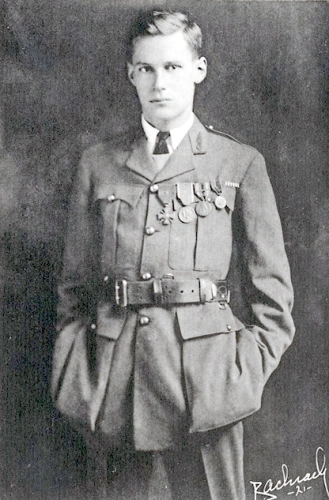
Harry Crosby
They rented a luxurious apartment and hosted dinner parties from their bed — then invited guests to join them in their huge bathtub and drink champagne. Later they rented a medieval mill, where they played drunken polo on donkeys. Polly once showed up at a costume party, wearing a turquoise wig and no top. Harry covered himself in red ocher and wore nothing but a loincloth and a necklace of four dead pigeons.
Normally, Harry wore a black carnation in his lapel but never a hat, painted his toes and fingernails and tattooed the bottom of his feet. One foot had a Christian cross, the other his trademark, a black sun.
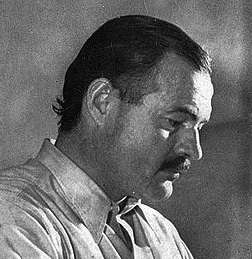
Ernest Hemingway
In 1927, Polly changed her name to Caresse. The couple founded the Black Sun Press, which published the early works of their own poetry and then-unknown writers: James Joyce, Hart Crane, Archibald MacLeish, Ernest Hemingway, Anaïs Nin and Henry Miller.
The End
Caresse and Harry Crosby traveled often, to the Middle East and Africa. In Morocco they once took a 13-year-old dancing girl named Zora to bed with them. Harry carried on a number of affairs with young women and at least one Arab boy in Jerusalem.
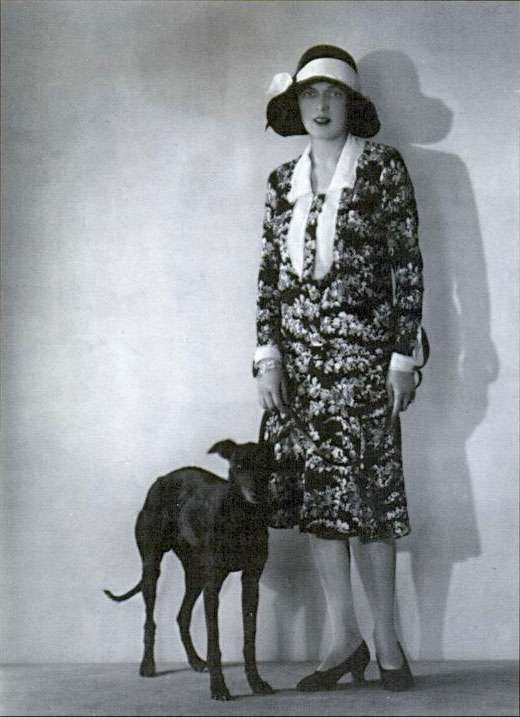
Caresse Crosby and her whippet, Clytoris
Harry met one of his young mistresses, Josephine Rotch, in Venice while she was shopping for her trousseau for her wedding to Alfred Bigelow, a naval commander who became a peace advocate. She was 10 years younger than he, and the affair continued after her marriage. She was dark, intense, fast and considered a ‘bad egg.’ Harry Crosby wrote to his mother, in whom he confided,
I am having an affair with a girl I met (not introduced) at the Lido. She is twenty and has charm and is called Josephine. I like girls when they are very young before they have any minds.
In 1929, Harry and Caresse returned to the United States for visits with family and the Harvard-Yale football game. On Dec. 10, 1929, Harry Crosby and Josephine Rotch were found dead in a bed in the studio of a friend. There was a .25 caliber bullet hole in each of their temples.
The coroner ruled Josephine died two hours before Harry. Newspapers went wild speculating about whether it was a murder-suicide pact or simply a murder, then suicide.
On the day before she died, Josephine sent a poem to Harry. The last line read,
Death is our marriage.
That same day, Harry Crosby wrote in his journal:
One is not in love unless one desires to die with one’s beloved. There is only one happiness it is to love and to be loved.
Caresse Crosby continued to publish the works of William Faulkner, Dorothy Parker, Hemingway and her late husband. Poet and writer Malcolm Cowley, who Crosby had published, wrote that the death of Harry Crosby symbolized the end of the Jazz Age.
With thanks to Black Sun, The Brief Transit and Violent Eclipse of Harry Crosby, by Geoffrey Wolff. This story was updated in 2023.
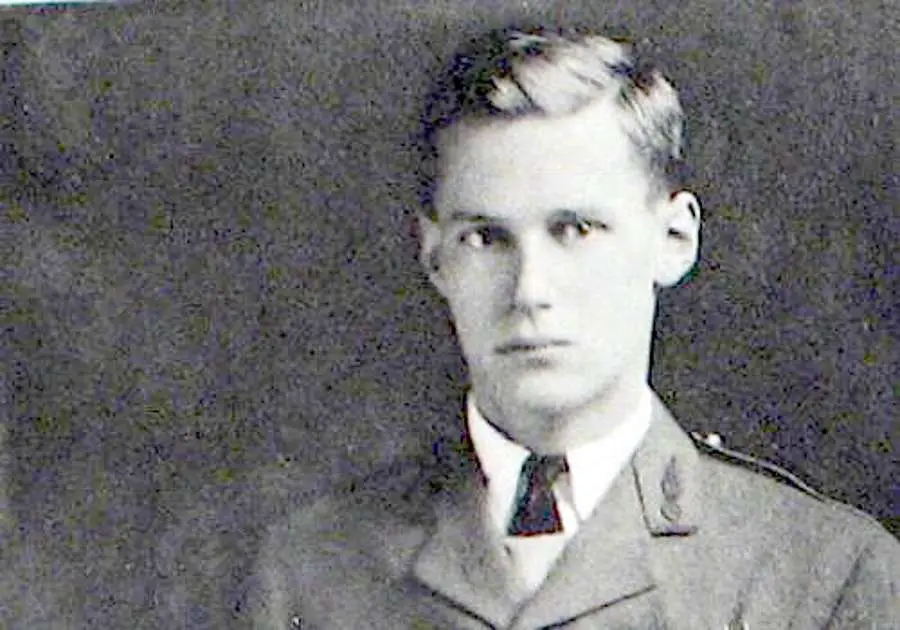
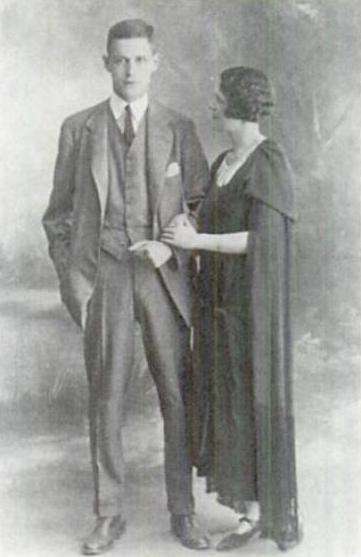
14 comments
Fascinating
Great story
Interesting, thanks.
Interesting read!
Dead pigeons. This is someone we want to remember? Good thing he is not doing this today, PETA would be enraged. Unless of course he donated money.
Interesting
[…] Archibald MacLeish was part of the Paris expatriate crowd that included Gertrude Stein, Ernest Hemingway, F. Scott Fitzgerald, Ezra Pound and Harry Crosby. […]
[…] When Starr was in her teens, she went through periods of odd behavior her family didn’t understand. She grew sullen and withdrawn, dressing in boys’ clothes to hide her femininity. Two months before graduation, she dropped out of Rogers Hall to live a life of Jazz Age depravity. […]
[…] Rudkins did well during the Wall Street boom of the Roaring ‘20s. They bought a 125-acre farm in Fairfield. There they built a Tudor-style mansion with a five-car […]
[…] the 1920s, the Society had become a Jazz Age version of the Taliban. It censored hundreds of books and plays. It forced the Boston Public […]
[…] Harry Crosby was a wealthy Boston Brahmin and World War I veteran. They had sex within two weeks of meeting and were married in 1922 after she divorced Peabody. They moved to Paris, where they spent freely, partied like mad, took drugs and lovers and started Black Sun Press. […]
[…] the Pickwick Club in Boston’s Tenderloin District was celebrating the Fourth of July in exuberant Jazz Age style, drinking, eating and dancing the Charleston. It was a revolutionary dance, a break from the […]
[…] Jazz Age zeitgeist captivated Brown students, many of whom studied as little as possible between football […]
[…] the 1920s, the Society had evolved into a Jazz Age version of the Taliban. It censored hundreds of books and plays. It forced the Boston Public […]
Comments are closed.